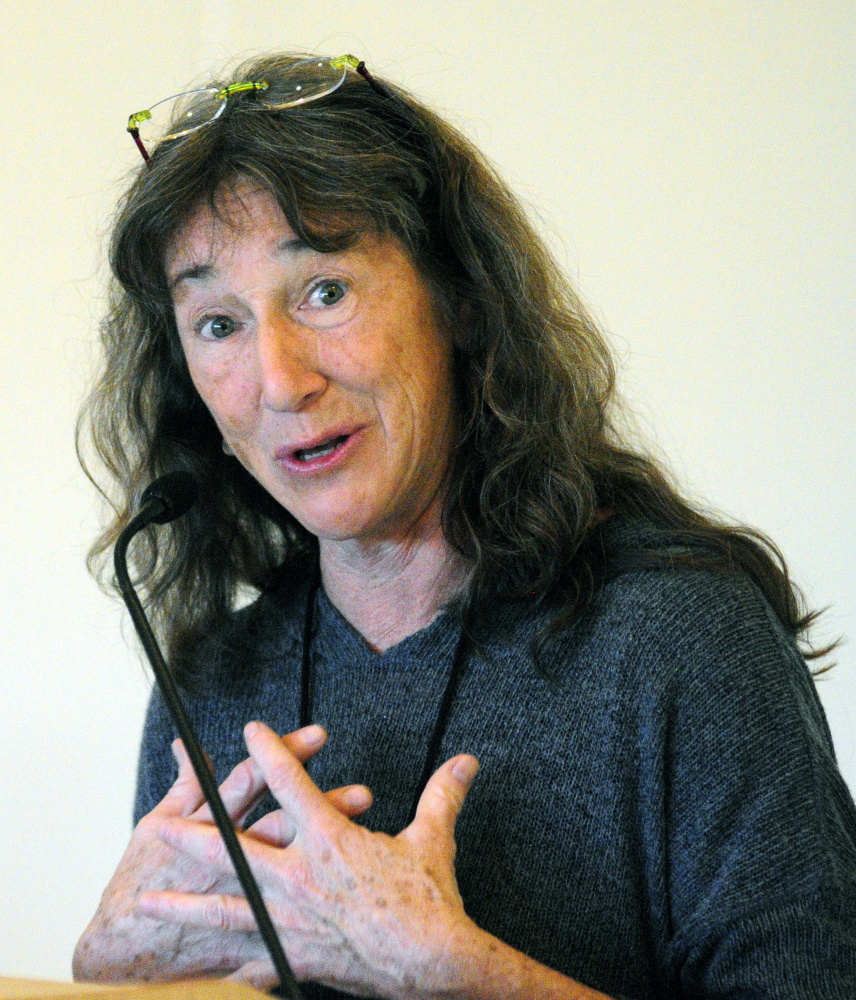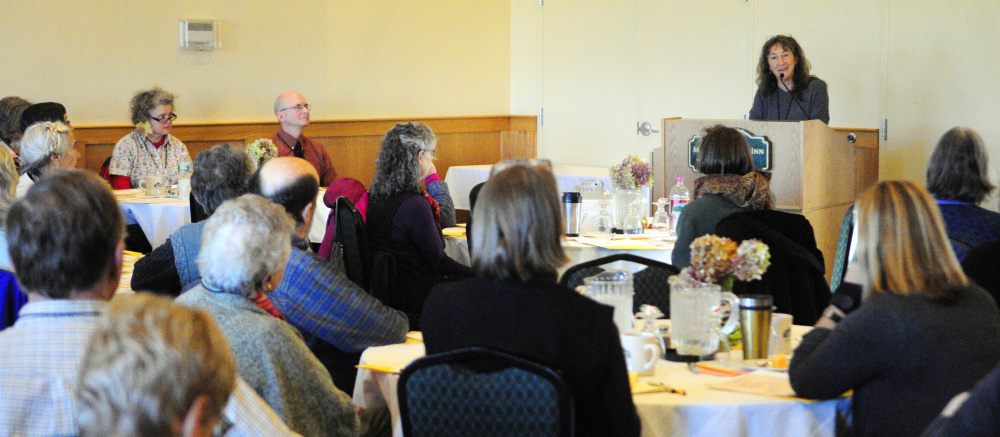HALLOWELL — When Kathy Leo and the Hallowell Singers, based in Brattleboro, Vermont, are attending the bedside of a person near death, she believes it’s extraordinary to be so close to death and feel such joy.
“We’re right next to the rawest grief we will ever see. We’ll see people cry, wail, fall into each other’s arms,” Leo said. To her, and to the singers like her, that grief is the evidence of love. “You wouldn’t have it if love wasn’t there.”
On Saturday, Leo spoke to more than 80 like-minded singers gathered for Singing for Those at the End of Life, Maine’s first statewide conference on bedside singing, hosted by the Harbour Singers of Saco at the Maple Hill conference center in Hallowell, Maine.
The Hallowell Singers – named in honor of a friend from the Maine town – is one of the oldest bedside singing groups in the country. For more than a decade, the Hallowell Singers have been present during the last days or even hours of life, singing softy and reverently songs from many traditions and languages, allowing people to grieve and cry at the death of a loved one.
Harry Vayo, like many of those who traveled from Maine and New Hampshire for Saturday’s conference, was inspired by Leo and the Hallowell Singers and a workshop they presented in Waterville about seven years ago.
“I knew by the time the workshop was done, I wanted to do this work,” Vayo said. His interest was sparked when he became the music director of the Unitarian-Universalist Church in Waterville. The result has been the Tourmaline Singers. They chose the name because tourmaline is Maine’s state gem and in ancient lore, particularly Roman lore, tourmaline was believed to have healing qualities.
The group has about a dozen singers at its core. People have come and gone in the group for a variety of reasons, he said. Some find bedside singing is not for them.
“This feeds my soul,” he said. “Now that I’ve started, I can’t imagine stopping.”
Even though bedside singing is relatively new, it honors the tradition of learning and sharing music long before technology made the world’s music instantly available. At Saturday’s conference, each of the bedside singing groups brought a song to share and teach – sometimes with sheet music, and sometimes, as Vayo and the Tourmaline Singers did, simply by speaking the lines, singing the different vocal parts, putting them all together and repeating the simple refrain: “All night and all day/Oh the angels keep watching over me/My Lord.”
Leo said awareness of hospice choirs, as they are also called, is growing, and along with that come concerns. Many medical hospices want people singing in hospices to undergo some sort of background check and hospice volunteer training. “We can work on a national certification that comes with some minimal standards,” she said. Members of the Hallowell Singers now undergo training on confidentiality and end-of-life issues, and they give and receive support on the difficult work of helping people grieve.
“The boundaries of giving and receiving really break down,” Vaya said.
Send questions/comments to the editors.



